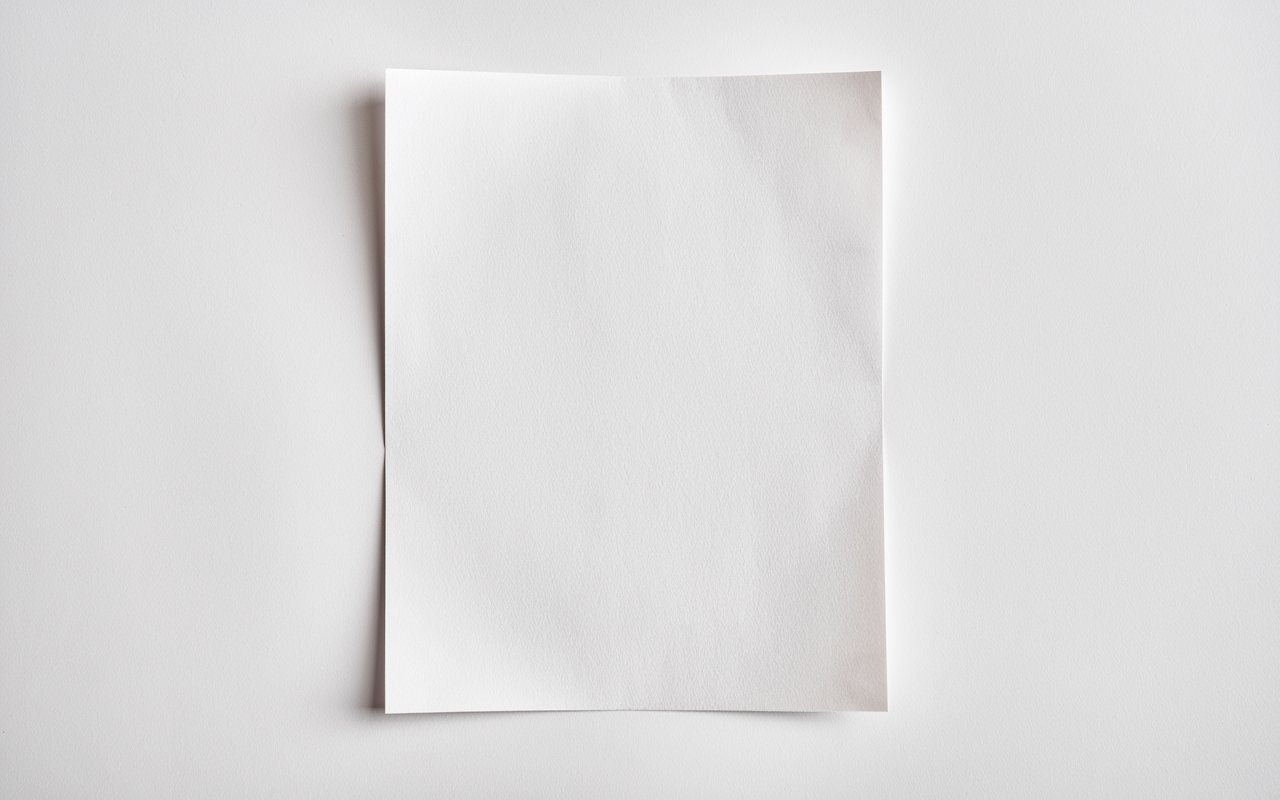In this example, I am your professor in this undergraduate Introduction To Philosophy. This is an experiment I did run in many of my classes. I would come out from behind the lectern holding a piece of typing paper, and I would ask:
“What is this? What do you see?”
Inevitably, someone would state the obvious: “A piece of paper”, or “A blank sheet of paper,” or just “Paper.”
These are not all the same, but I will let that go for now. I repeat an answer back to them: “Okay, it’s a piece of paper,” then follow up with another question: “And what else do you see?"
And I let the silence grow.
“It’s a blank sheet of printer paper,” another student chimes in, helpfully.
Yes, it is. That it is a blank sheet of printer paper tells us not only about what it is used for, but your relationship to this paper. It is blank, and there is an expectation that it will be filled with marks. That is what it is for. That it is printing paper tells us one way in which those marks can be made, but of course we could just make marks with any writing or pointed instrument. And if I took a pointed instrument and made a hole in it, maybe I can also call it my art work. So I, the artist, see a representation of nothingness, oblivion, and hunger in a work of art, in this blank piece of printer paper.
Professor: “What else do you see?”
Student: “I see a dead tree.”
Professor: “Yes, I see a dead tree too. Does anyone else see a dead tree? Hashtag #SAD If so you see where this paper came from, it’s origin. And if you feel sad, you see environmental concerns with cutting down the trees that produce the CO2 that keeps the planet ecosystem in order. You might even see the human species as a problem… So what else do you see?”
They are now catching on to the game.
Professor: “Say that you are a Math major, what might you see?”
Student: “A rectangle, four right angles…”
Professor, crumbling up the paper: “Yes, exactly. Now, let’s destroy that perception, and make this here in to a ball. Now, is what you see different?” I, the professor, pause here to let them think about this. “Raise your hand if you say yes, you see something different.” And I may ask a student to volunteer what they now see that is different, then invite a countering view from someone who thinks they see the same piece of paper.
Discussion ensues…
“So you see change from a rectangle, a flat surface, to a 3 dimensional ball. Let’s open it back up again, and flatten it as best we can. Same or different?”
Let’s now take this piece of paper and rip it up into tiny tiny pieces. Eventually, we might rip up pieces so small that we will no longer be able to see them. Is the paper destroyed? Have I destroyed the paper?
Look, I am throwing it to the wind. It is now dust, in the air, we breathe it in.
You might believe that the paper, when destroyed, still exists, it has just changed it shape. Now we’re onto some metaphysical questions, questions that were asked at the very beginning of the History of Philosophy. As things change, do they simply change form and become something else, so that those little tiny tiny, invisible pieces of paper now attach themselves to other things and become part of the dust that is swept up, or breathed in . The paper is now part of us. Can the paper acquire life? Is the paper in us alive?
On that view, we have a closed system where things don’t come into an out of existence, they simply change form all the time. If you believe in God, or in an outside to existence, you might believe that things do come into an out of existence, and that then creates a whole new set of problems and questions.
Becoming educated is about being able to look at anything, even an object as simple as a piece of paper, and be able to tell a compelling story about its existence, what it’s for, it’s origin and history, it’s relationship to you and other things, what you want to do with it in your world and given your projects, and more.
Being educated gives you the ability to think about your experiences in the world, not only with respect to pieces of paper, but also with respect to other people. What if you hold up a person, what questions might we want to ask about them? What questions are relevant to people? What about institutions, such as organized religions, economic systems like capitalism, social systems like patriarchy, how can we learn to begin to think about these?
We learn to think by thinking about the things that matter most to us. What matters to you? What would it do for you to be able to think expansively through those things that matter most




@CAROLINEOSELLA
@MOTHEROCEANLIT
@13KJ
@TANGLEDTHOUGHTSBLOG
@LAOISEDAVERN
@JMIKAELOLSSON1
@DISTURBIAAFICIONADO371440
@r1cec4ke
I was trying to see if I could run this experiment in the notes, this post explains it a little bit more.